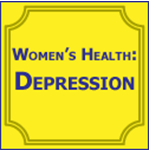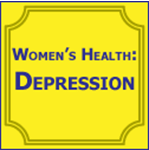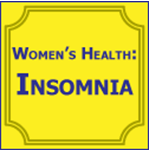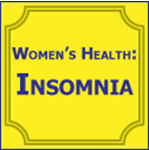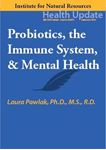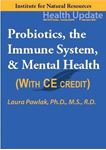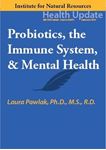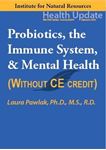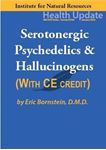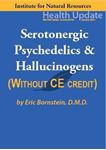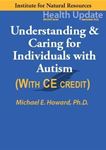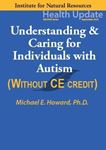You have no items in your shopping cart.
Psychology
Women's Health: Depression
Identifies the most prevalent forms of depression. Identifies the symptoms of depression and mania. Identifies the differences in presentation across age groups and sexes. Compares the theories of depression. Reviews depression treatment modalities.
$30.00
Women's Health: Depression - Ebooklet
Identifies the most prevalent forms of depression. Identifies the symptoms of depression and mania. Identifies the differences in presentation across age groups and sexes. Compares the theories of depression. Reviews depression treatment modalities.
$25.00
Women's Health: Insomnia
Discusses the physiology of sleep. Describes healthy sleep patterns. Identifies the different types of insomnia. Discusses women’s sleep problems across their life cycle. Identify treatments for insomnia including optimal sleep hygiene, behavioral methods, and pharmaceuticals.
$30.00
Women's Health: Insomnia - Ebooklet
Discusses the physiology of sleep. Describes healthy sleep patterns. Identifies the different types of insomnia. Discusses women’s sleep problems across their life cycle. Identify treatments for insomnia including optimal sleep hygiene, behavioral methods, and pharmaceuticals.
$25.00
Probiotics, the Immune System, & Mental Health - DVD - 6 Hours (w/Home-study exam)
Identifies the human microbiota, including beneficial bacteria (probiotics) and beneficial fiber (prebiotics).
Describes the effects of human microbiota with regard to the digestive, immune and mental health conditions. Lists the pro- and anti-inflammatory influences, including those of essential lipids and amino acids. Identifies interventions to address chronic inflammation, pathological appetite, and mental health manifestations of microbiome imbalance. Identifies mental health consequences of gastrointestinal pathobionts as related to various mental disorders. Discusses the role of the immune system with regard to cariogenic bacteria and regeneration of dentin. Describes how the information in this course can be utilized to improve patient care and patient outcomes. Describe, for this course, the implications for dentistry, mental health, nursing, and other healthcare professions.
$83.00
Probiotics, the Immune System, & Mental Health - Streaming Video - 6 Hours (w/Home-study exam)
Identifies the human microbiota, including beneficial bacteria (probiotics) and beneficial fiber (prebiotics).
Describes the effects of human microbiota with regard to the digestive, immune and mental health conditions. Lists the pro- and anti-inflammatory influences, including those of essential lipids and amino acids. Identifies interventions to address chronic inflammation, pathological appetite, and mental health manifestations of microbiome imbalance. Identifies mental health consequences of gastrointestinal pathobionts as related to various mental disorders. Discusses the role of the immune system with regard to cariogenic bacteria and regeneration of dentin. Describes how the information in this course can be utilized to improve patient care and patient outcomes. Describe, for this course, the implications for dentistry, mental health, nursing, and other healthcare professions.
$83.00
Probiotics, the Immune System, & Mental Health - DVD only *NO CE - 6 hours
Identifies the human microbiota, including beneficial bacteria (probiotics) and beneficial fiber (prebiotics).
Describes the effects of human microbiota with regard to the digestive, immune and mental health conditions. Lists the pro- and anti-inflammatory influences, including those of essential lipids and amino acids. Identifies interventions to address chronic inflammation, pathological appetite, and mental health manifestations of microbiome imbalance. Identifies mental health consequences of gastrointestinal pathobionts as related to various mental disorders. Discusses the role of the immune system with regard to cariogenic bacteria and regeneration of dentin. Describes how the information in this course can be utilized to improve patient care and patient outcomes. Describe, for this course, the implications for dentistry, mental health, nursing, and other healthcare professions.
$69.00
Probiotics, the Immune System, & Mental Health - Streaming Video only *NO CE - 6 hours
Identifies the human microbiota, including beneficial bacteria (probiotics) and beneficial fiber (prebiotics).
Describes the effects of human microbiota with regard to the digestive, immune and mental health conditions. Lists the pro- and anti-inflammatory influences, including those of essential lipids and amino acids. Identifies interventions to address chronic inflammation, pathological appetite, and mental health manifestations of microbiome imbalance. Identifies mental health consequences of gastrointestinal pathobionts as related to various mental disorders. Discusses the role of the immune system with regard to cariogenic bacteria and regeneration of dentin. Describes how the information in this course can be utilized to improve patient care and patient outcomes. Describe, for this course, the implications for dentistry, mental health, nursing, and other healthcare professions.
$69.00
Serotonergic Psychedelics & Hallucinogens - Streaming Video (w/Home-study exam)- 4 hours
Lists the psychedelic and hallucinogenic drugs commonly encountered in current clinical settings. Discusses the effects of psychedelic drugs and hallucinogens on perception and judgment. Describes the clinical hallmarks of hallucinogen use such as pupillary changes, sweating, palpitations, and ataxia. Lists the short and long term effects of hallucinogenic drugs, including flashbacks and persisting perception disorder. Describes the major clinical findings in patients using Psilocybin, Mescaline, and DMT. Discusses the clinical importance of recognizing psychedelic drug use in patients seen by professionals in mental health, pharmacy, nursing, dentistry, occupational, and physical therapy.
$69.00
Serotonergic Psychedelics & Hallucinogens - Streaming Video only *NO CE - 4 hours
Lists the psychedelic and hallucinogenic drugs commonly encountered in current clinical settings. Discusses the effects of psychedelic drugs and hallucinogens on perception and judgment. Describes the clinical hallmarks of hallucinogen use such as pupillary changes, sweating, palpitations, and ataxia. Lists the short and long term effects of hallucinogenic drugs, including flashbacks and persisting perception disorder. Describes the major clinical findings in patients using Psilocybin, Mescaline, and DMT. Discusses the clinical importance of recognizing psychedelic drug use in patients seen by professionals in mental health, pharmacy, nursing, dentistry, occupational, and physical therapy.
$49.00
Understanding & Caring for Individuals with Autism - Streaming Video - 6 Hours (w/Home-study Exam)
Describes the history and development of the concept of autism as a spectrum condition. Identifies the current DSM-5 diagnostic criteria for Autism Spectrum Disorder, several co-occurring disorders, and other similar neurodevelopmental disorders like Rett Syndrome and Fragile X. Discusses the difference between considering autism to be (a) a neurodivergent development of normal brain functions and (2) a mental disorder. Describes the remarkable heterogeneity of strengths and deficits of individuals with autism spectrum disorder, including major challenges for support and treatment. Identifies patterns of structural and functional changes in the brain in individuals with autism. Discusses the variety of evidence-based behavioral and medical treatments for Autism Spectrum Disorder. Describes how the information from this course can be utilized across health care disciplines, including dentistry, mental health, pharmacy, psychology, social work, counseling, nursing, occupational therapy, physical therapy, speech-language pathology, dietetics, and other healthcare professions to improve patient care outcomes.
$83.00
Understanding & Caring for Individuals with Autism - Streaming Video only *NO CE - 6 Hours
Describes the history and development of the concept of autism as a spectrum condition. Identifies the current DSM-5 diagnostic criteria for Autism Spectrum Disorder, several co-occurring disorders, and other similar neurodevelopmental disorders like Rett Syndrome and Fragile X. Discusses the difference between considering autism to be (a) a neurodivergent development of normal brain functions and (2) a mental disorder. Describes the remarkable heterogeneity of strengths and deficits of individuals with autism spectrum disorder, including major challenges for support and treatment. Identifies patterns of structural and functional changes in the brain in individuals with autism. Discusses the variety of evidence-based behavioral and medical treatments for Autism Spectrum Disorder. Describes how the information from this course can be utilized across health care disciplines, including dentistry, mental health, pharmacy, psychology, social work, counseling, nursing, occupational therapy, physical therapy, speech-language pathology, dietetics, and other healthcare professions to improve patient care outcomes.
$69.00

